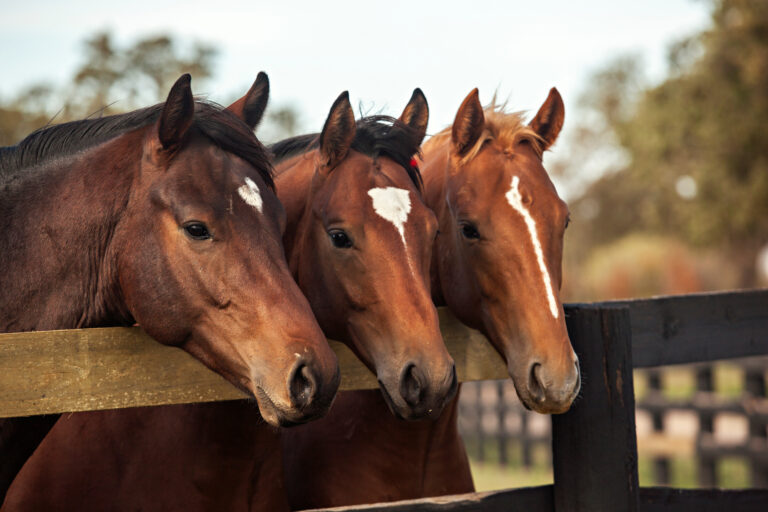The Equine Disease Communication Center (EDCC) offers alerts about equine diseases that have been confirmed by reliable sources. The following information is from the EDCC.
Eight 2016 WNV Cases in California
On August 19, 2016, a 2-year-old unvaccinated Quarter Horse gelding in Calaveras County and a 18-year-old unvaccinated gelding in Ventura County were confirmed positive for West Nile virus (WNV). Both were displaying neurologic signs at the time of diagnosis and both are recovering.
For 2016, a total of eight horses have been confirmed positive for WNV. The positive horses are located in the following counties: Fresno, Calaveras, Riverside, Sacramento, San Diego, San Joaquin, Sutter and Ventura. None of the horses were current on their WNV vaccinations. Two of the eight positive confirmed horses were euthanized.
The California Department of Food and Agriculture (CDFA) continually monitors and investigates equine neurologic cases for the presence of WNV in California. CDFA urges horse owners to consult their veterinarian concerning a WNV vaccination program to ensure maximum protection of their horses. For more information go to https://www.cdfa.ca.gov/ahfss/animal_health/WNV_Info.html.
Washington State Neurologic EHV Case
The Washington State University College of Veterinary Medicine has confirmed a single horse with a neurologic form of equine herpesvirus type 1 (EHV-1) has been in isolation since it arrived Aug. 18 at the Veterinary Teaching Hospital in Pullman Washington. The 18-year-old Quarter Horse mare from Newport, Washington, had been competing in rodeo events until she developed clinical signs. The mare was to be euthanized Aug. 19. The Veterinary Teaching Hospital remains open to receive cases. For more information go to https://news.wsu.edu/2016/08/19/wsu-veterinarians-confirm-equine-herpes-case/.
Five New WNV Cases in Minnesota
The Minnesota of Animal Health has reported five additional cases of WNV, bringing the total to seven cases for 2016. An unvaccinated 6-year-old Standardbred gelding was euthanized in Todd County on July 30 and confirmed positive for WNV on Aug. 9. A 4-year-old unvaccinated draft mare was confirmed positive on Aug. 12 in Polk County; she is uncoordinated, but able to stand and walk. An 8-year-old unvaccinated Quarter Horse gelding was euthanized in Renville County on Aug. 10 and confirmed positive on Aug. 12. An unvaccinated Morgan mare in Winona County was confirmed positive on Aug. 16; she is currently receiving supportive care and is slowly improving. An unvaccinated 8-year-old Appaloosa gelding in Chisago County was confirmed positive on Aug. 18; he is having difficulty standing on his own. For more information go to https://www.bah.state.mn.us/horses/#equine-encephalitis-virus-and-west-nile-virus.
Two New South Carolina EEE Cases
The South Carolina State Veterinarian’s office received laboratory confirmation of two new EEE cases this week. The first case was an unvaccinated, 10-year-old Paint from Chesterfield County. The horse did not survive. This is the first confirmed case in Chesterfield County this year. An additional case in Horry County was a 1.5-year-old Quarter Horse. The total number of confirmed cases in South Carolina in 2016 is now 14. CORRECTION to the August 12 alert–the 5-month-old colt was from Darlington County and not Florence County. For more information go to http://www.clemson.edu/public/lph/ahp/rep_disease.html.
About EDCC
The Equine Disease Communication Center works to protect horses and the horse industry from the threat of infectious diseases in North America. The communication system is designed to seek and report real time information about disease outbreaks similar to how the Centers for Disease Control and Prevention (CDC) alerts the human population about diseases in people.
The goal of the EDCC is to alert the horse industry about disease outbreak information to help mitigate and prevent the spread of disease. Ultimately frequent and accurate information about diseases outbreaks improves horse welfare and helps to prevent negative economic impact that can result from decreased horse use due to a fear of spreading infection. As part of the National Equine Health Plan the EDCC will serve as part of the communication to help educate and promote research about endemic and foreign disease.
Working in cooperation with state animal health officials and the United State Department of Agriculture, the EDCC seeks information about current disease outbreaks from news media, social media, official state reports and veterinary practitioners. Once information is confirmed, it is immediately posted on this website and messages sent to all states and horse organizations by email. Daily updates are posted until each outbreak is contained or deemed no longer a threat.
The EDCC is made possible by generous donations from organizations and horse owners. Please visit our sponsors that have generously supported this program for the benefit of the health and welfare of horses. To learn how you can help go to SUPPORT.








